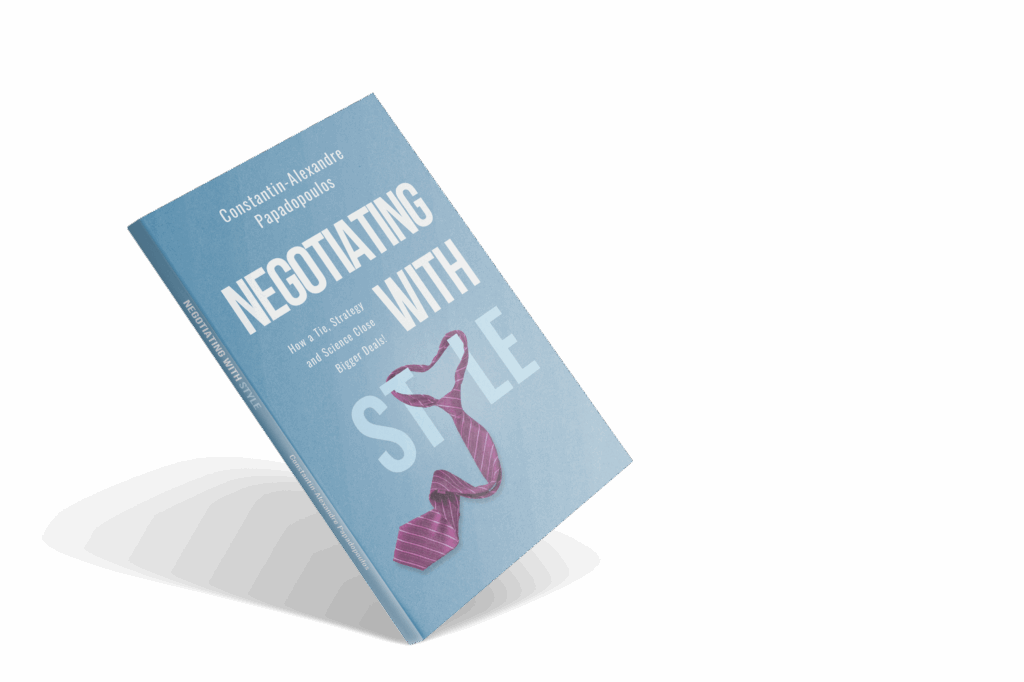Do negotiations make you anxious?

In the past ten days, I’ve encountered multiple stories that highlight a common challenge: negotiation anxiety. One such story comes from the sparring sessions at snipers.sale, typically a fun exercise, which unexpectedly led to a sleepless night for a newcomer. It raises an intriguing question: Does the mere thought of sitting across the negotiation table or joining a virtual meeting trigger a sense of dread for many of us?
If you’ve ever felt your heart race in anticipation of a negotiation, know that you are not alone. This article is for you. Here, we delve into the reasons behind the intimidation often felt in negotiations, ponder the potential benefits of this anxiety, and provide you with actionable steps to manage and transform these fears. Our aim is to guide you in turning negotiation anxiety from a hindrance into a source of strength.”
Where does the fear come from?
Fear of the unknown is often at the heart of negotiation anxiety. It’s the uncertainty about the other party’s goals, strategies, or bottom line that can paralyze or lead to rash decisions.
Another significant source of anxiety is fear of loss, where the prospect of losing something of value overshadows the potential gains.
Negotiators also often worry about being taken advantage of, especially in situations where there is a perceived power imbalance.
In addition, the tension between achieving personal goals and the need for collaborative outcomes can create anxiety.
What’s the impact of fear?
Fear in negotiations often reveals itself in various, subtle ways. One common response to fear is over-reliance on others. It’s prudent to seek advice from colleagues or friends, especially when it pertains to specialized areas like legal, real estate, or business matters. However, the key is in striking a balance between this external advice and your own informed judgment. A thorough assessment of the situation, coupled with such inputs, ensures that decisions align with your strategic plan and objectives.
Another significant impact of fear is the tendency to avoid negotiations entirely. Think back to instances where you might have gained a significant advantage but chose to wait or completely discard the proposal. Often, it seems simpler not to enter the negotiation arena at all. However, understanding the true cost of such avoidance is crucial. It can be the push needed to confront these fears, motivating you to develop the skills required for effective negotiation. Embracing negotiation, despite the inherent fear, can open doors to opportunities and interests that might otherwise remain unexplored.
Snipers.sale’s Experience with Negotiation Fear
At Snipers.sale, our firsthand experiences with emotionally charged negotiations have vividly highlighted how they can amplify anxiety. These scenarios often extend beyond the straightforward signing of deals. We find ourselves navigating complex issues like delayed payments, unresolved disputes, or even perceived injustices. Our key strategy in these instances has been effective emotion management. This involves not only recognizing and addressing our own emotional reactions but also engaging in empathetic listening and maintaining clear, transparent communication.
We’ve also encountered anxiety when considering changes that could potentially benefit our position, such as asking for a price increase or revising terms and conditions. In these situations, our approach has been to strike a balance between assertiveness and fairness, always underpinned by a careful assessment of the situation. It’s about finding the middle ground where our interests are protected while maintaining equitable relations.
These experiences have taught us a crucial lesson: anxiety in negotiations is not exclusive to novices; it’s a universal challenge that affects even the most seasoned professionals. Understanding this has been pivotal for our team. It’s led us to constantly evolve our strategies, ensuring they are not just effective but also adaptable to the emotional complexities of negotiation.
What you can do?
Understanding the context of negotiation can be a powerful antidote to fear. This includes gathering information, anticipating challenges, and formulating strategies.
Clear communication also plays a key role in reducing misunderstandings and building trust. Being direct and transparent about goals, constraints, and expectations can prevent unnecessary anxiety. In addition, active listening and empathy can help to understand the other party’s perspective.
Using psychological dynamics can give negotiators an edge. Techniques such as framing the negotiation positively, using anchoring to set expectations, and employing persuasive communication can improve negotiation outcomes and reduce anxiety by providing a sense of control and predictability.
One last thought
Our journey through negotiation craftsmanship reveals that our greatest challenge often lies within. The antidote? A moment of introspection, a look in the mirror, and a decision to take control of the negotiation process. Echoing the timeless wisdom of Yoda, ‘Fear is the path to the dark side. Fear leads to anger. Anger leads to hate. Hate leads to suffering.’ This profound insight, though from a galaxy far, far away, mirrors the complexities of negotiation anxiety in our world. Fear and anxiety, while natural, don’t have to dictate our outcomes. Recognizing and understanding these emotions is the first step in transforming them from obstacles to catalysts for growth and success.
The goal is not to eradicate anxiety completely but to learn to navigate it with skill and confidence. Like a seasoned athlete adjusting strategies at half-time, the key lies in having a robust game plan coupled with the agility to adapt as the game of negotiation unfolds. By embracing this approach, we empower ourselves to manage anxiety effectively, turning potential setbacks into opportunities for successful negotiations.
Now, we turn the discussion over to you. How do you manage anxiety during your negotiations? Share your experiences and strategies in the comments below and let’s continue to learn from each other in this ever-evolving art of negotiation.”
About the author
Co-founder of snipers.sale and negotiation engineer.
Our participants benefit from psychology, communication and business negotiation expertise to maximize their negotiation outcomes.
